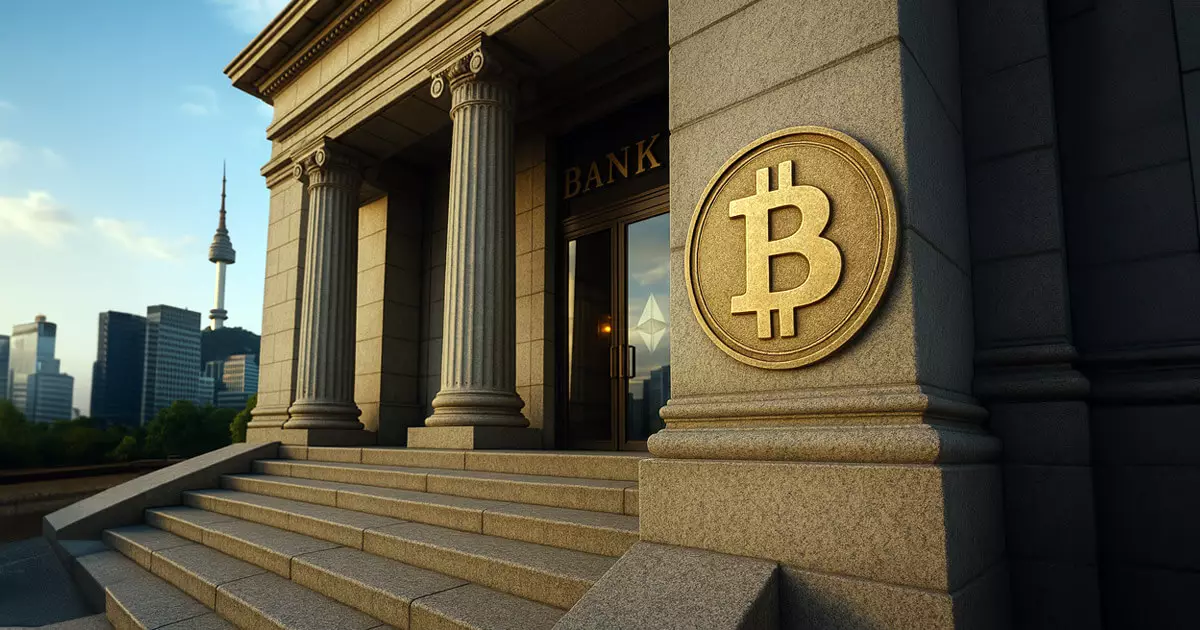In a rapidly evolving financial landscape, the rigidity of South Korea’s current crypto policy is becoming increasingly untenable. Major South Korean banks are advocating for amendments that would allow multiple banking partners for individual crypto exchanges, a shift that could significantly enhance consumer choice and invigorate competition. This plea echoes a broader sentiment: the existing one-to-one banking framework—introduced purportedly to combat money laundering—has become a straitjacket stifling growth and innovation within the crypto sector.
The one-bank-per-exchange rule emphasizes a need for more robust anti-money laundering measures, but the real-world consequences are retrogressive. By mandating exchanges to partner with a single bank, the government inadvertently cultivates a monopolistic atmosphere detrimental to user experience. This situation makes it exceptionally difficult for smaller exchanges to thrive while also trapping users in a system that lacks flexibility.
Consumer Choices are Dwindling
The concerns voiced by major banking executives, including Woori Bank’s CEO, underscore a significant fact: consumer freedom is at stake. As the banking industry braces itself for evolving financial technologies, limiting exchanges to their banking partners hampers consumer options. Imagine a market where users are forced to rely only on what one bank offers, resulting in a monotonous experience devoid of varied services or competitive pricing. If banks were able to partner with multiple exchanges, they would be compelled to compete for customers, ultimately leading to lower fees and safer transactions.
This decline in consumer choice is particularly alarming when set against a backdrop where international fintech innovations are racing ahead. It is unnerving that a nation known for its technological prowess is stymying its own financial evolution. The rigid framework not only sidelines innovation but also discourages foreign direct investment, as international crypto firms perceive the South Korean market as restrictive.
Risk Management and Systemic Stability
A critical argument for reevaluating the one-bank structure centers on systemic risk. Lawmakers have raised legitimate concerns regarding the fragility of banking arrangements tied exclusively to a single exchange, as exemplified by K Bank’s relationship with Upbit. When a staggering 20% of K Bank’s deposits are sourced from a single exchange, it creates a precarious situation; any disruption could spiral into a liquidity crisis for the bank, threatening the overall financial ecosystem.
If adopted, a more flexible banking model could promote better risk management strategies and encourage the diversification of funding sources for exchanges. Allowing multiple banks to partner with crypto platforms not only fortifies the stability of these institutions but also engenders a more resilient economic environment. Regulators must recognize that a diverse banking ecosystem can mitigate the risks inherent in the sweeping changes we see within the crypto landscape.
Reforming South Korea’s crypto regulations could unleash a wave of ingenuity and competition, fostering a healthier financial environment. It is high time for these outdated policies to evolve; the opportunity for South Korea to lead the way in the global digital economy should not be squandered by antiquated rules.

